New
Learn how to make a butterfly garden, get some fun facts and tips about butterflies, and see two examples of butterfly gardens in this colorful guide.
Attract these butterflies
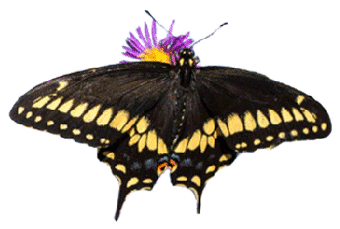
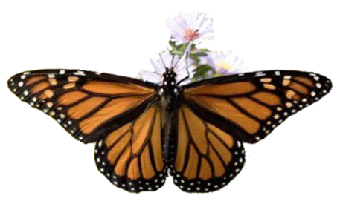
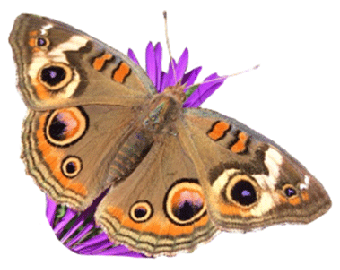
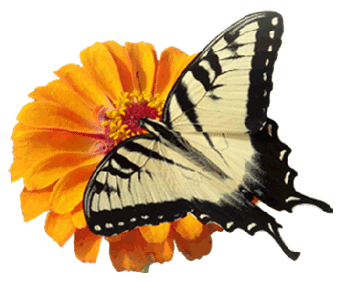
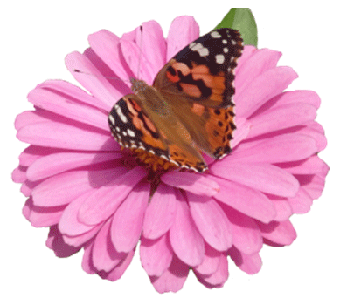
Black swallowtail, monarch, common buckeye, eastern tiger swallowtail, and painted lady.
How to make a butterfly garden
- Find a location with at least 6 to 8 hours of sunlight.
- Choose an area equal to 100 square feet (roughly 10 feet × 10 feet). Several smaller areas can be planted but they need to be close together and equivalent to 100 square feet.
- Plant lots of flowers!
- Different colors.
- Different shapes.
- Different sizes and heights.
- Combine nectar and caterpillar food sources.
- Plant at least 10 plants of two different species to increase butterfly numbers.
- Direct seed flowers and use flower transplants.
- Add a small clay saucer or birdbath with sand or small pebbles in the bottom and shallow water for butterflies.
- Add light colored rocks for basking in the sunlight on cool mornings.
- Add fruit peelings like watermelon or cantaloupe to attract some butterflies.
Attract these caterpillars
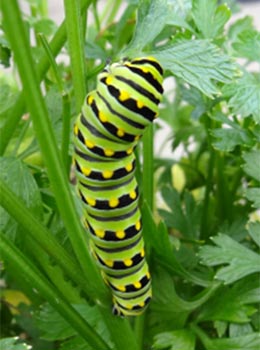
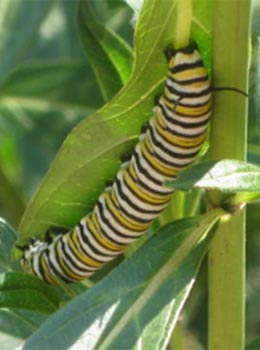
Black swallowtail and monarch caterpillars.
Food sources for caterpillars
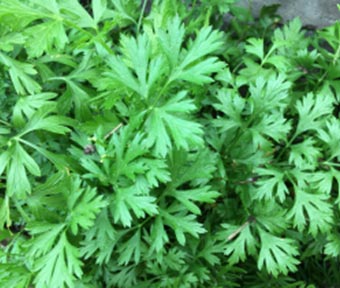
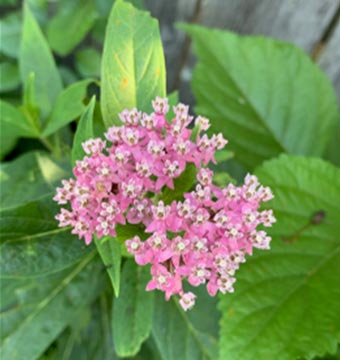
Parsley for black swallowtail caterpillars. Milkweed for monarch caterpillars.
Fun facts and tips
- There are 198 recorded species of butterflies in Missouri. Each species is unique and requires various nectar and food sources.
- The role of butterflies is important in nature. As pollinators, they help plants produce fruit and seeds.
- Butterflies love the sun. They use it to increase their body temperature, which is necessary for flight.
- Butterflies have food preferences. Flowers with high sugar concentration are best as a food source.
- Lifecycle of a butterfly is complete metamorphosis: egg, caterpillar, pupa to adult.
Examples of butterfly gardens
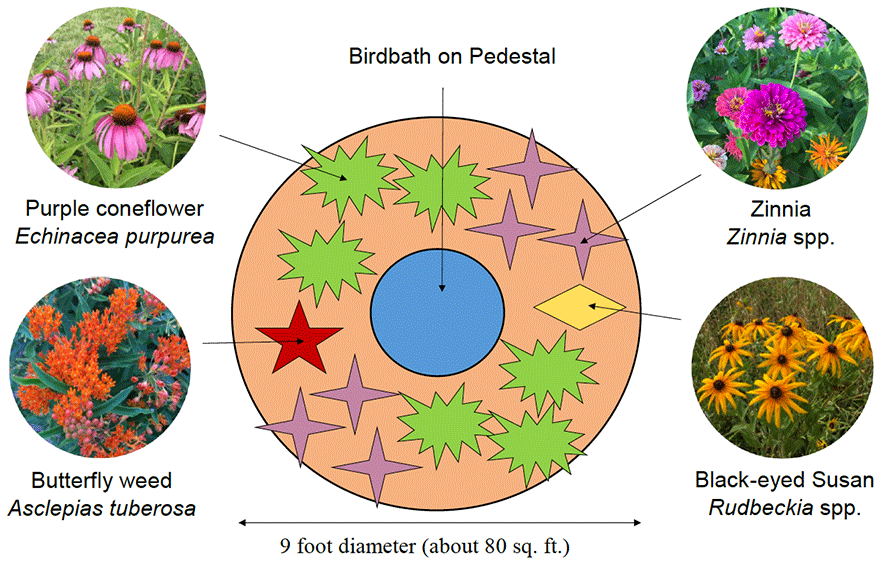
A round butterfly garden with purple coneflower, zinnia, butterfly weed, and black-eyed Susan plants.
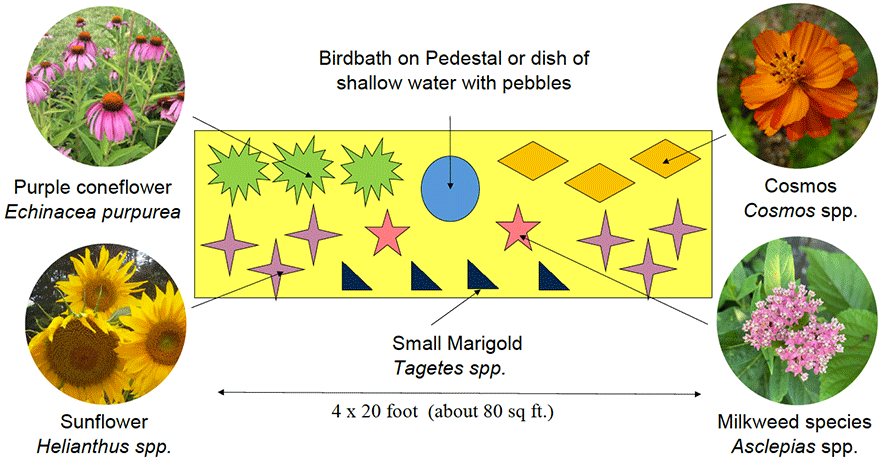
A round butterfly garden with purple coneflower, cosmos, sunflower, and milkweed plants.
-
Nectar plants from seed
- Black-eyed Susan
- Cosmos
- Gaillardia
- Marigold
- Snapdragon
- Sunflower
- Zinnia
-
Nectar plants as transplants
- Aromatic aster
- Butterfly bush
- Butterfly weed
- Coreopsis
- Lantana
- Liatris
- Milkweed species
- Monarda
- Phlox
- Purple coneflower
-
Food for caterpillars
- Dill
- Hollyhock
- Milkweed
- Parsley
- Snapdragon
Resources
- MU Extension publication M404, Native Insect Pollinators and Their Habitats
- Missouri Botanical Garden Butterfly Gardening (PDF)